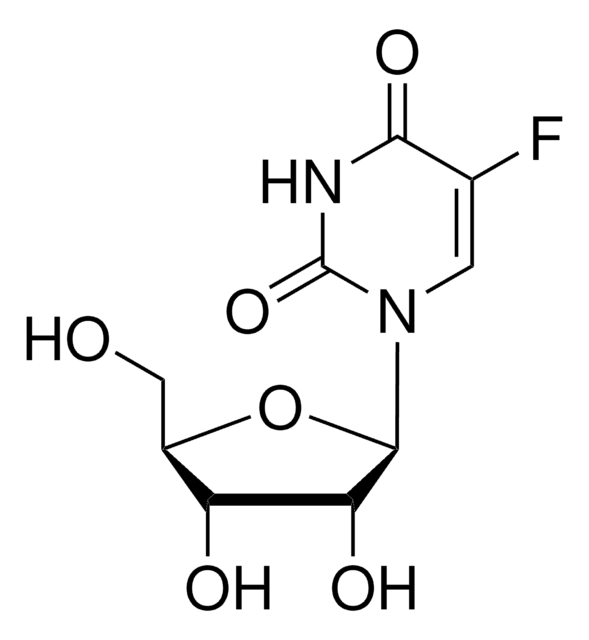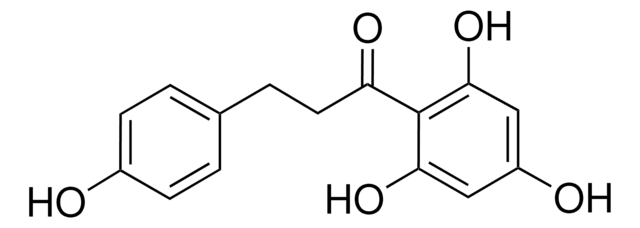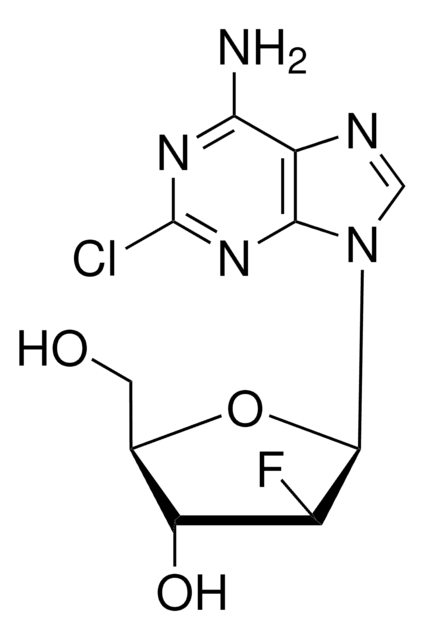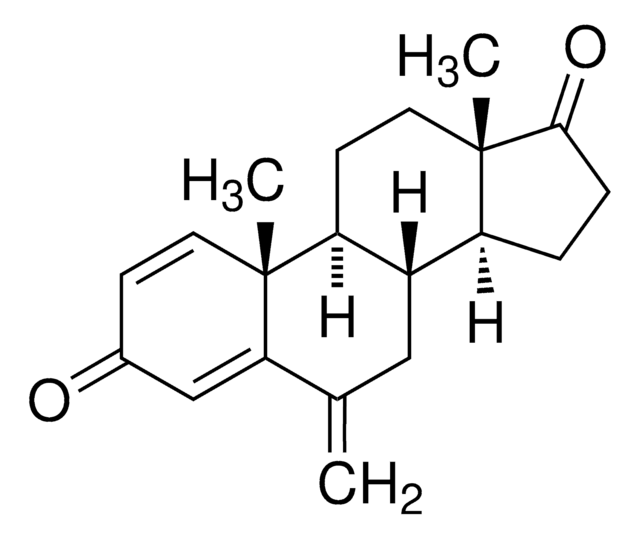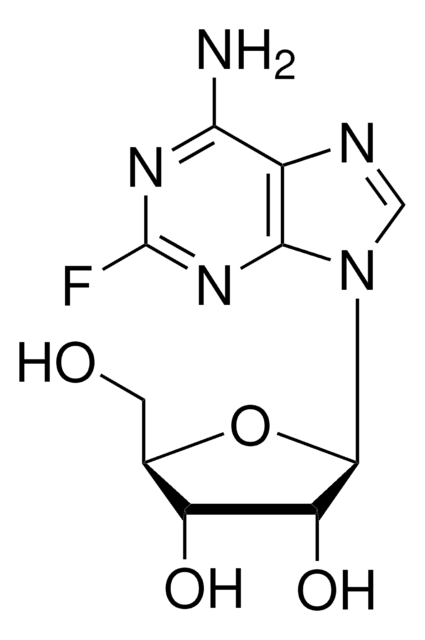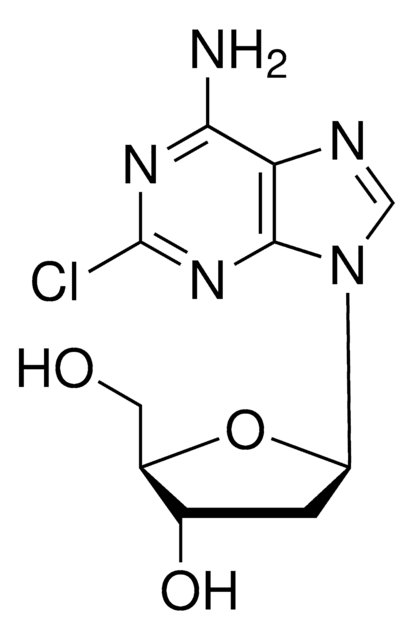SML0653
Capecitabine
≥98% (HPLC)
Sinónimos:
5′-Deoxy-5-fluoro-N-[(pentyloxy)carbonyl]cytidine, Ro-9-1978
About This Item
Productos recomendados
Quality Level
assay
≥98% (HPLC)
form
powder
optical activity
[α]/D +80 to +100°, c = 0.5 in methanol
color
white to beige
solubility
H2O: 10 mg/mL, clear (warmed)
storage temp.
2-8°C
SMILES string
O[C@H]1[C@@H](O)[C@H](N2C(N=C(NC(OCCCCC)=O)C(F)=C2)=O)O[C@@H]1C
InChI
1S/C15H22FN3O6/c1-3-4-5-6-24-15(23)18-12-9(16)7-19(14(22)17-12)13-11(21)10(20)8(2)25-13/h7-8,10-11,13,20-21H,3-6H2,1-2H3,(H,17,18,22,23)/t8-,10-,11-,13-/m1/s1
InChI key
GAGWJHPBXLXJQN-UORFTKCHSA-N
Gene Information
human ... TYMS(7298)
¿Está buscando productos similares? Visita Guía de comparación de productos
Application
- in combination with gemcitabine to achieve glutamine deprivation by enhancing the sensitivity of expression in pancreatic ductal adenocarcinoma (PDAC) cells to inhibitors of glutamine metabolism and study its effect on PDAC cell survival
- to study the drug metabolic function in a two-organ microfluidic system
- as an anti-cancer agent to study its cytotoxic activity alone or in combination with B87 on cancer cells
Biochem/physiol Actions
signalword
Danger
hcodes
Hazard Classifications
Carc. 1B - Muta. 2 - Repr. 1B
Storage Class
6.1C - Combustible acute toxic Cat.3 / toxic compounds or compounds which causing chronic effects
wgk_germany
WGK 3
flash_point_f
Not applicable
flash_point_c
Not applicable
Certificados de análisis (COA)
Busque Certificados de análisis (COA) introduciendo el número de lote del producto. Los números de lote se encuentran en la etiqueta del producto después de las palabras «Lot» o «Batch»
¿Ya tiene este producto?
Encuentre la documentación para los productos que ha comprado recientemente en la Biblioteca de documentos.
Los clientes también vieron
Nuestro equipo de científicos tiene experiencia en todas las áreas de investigación: Ciencias de la vida, Ciencia de los materiales, Síntesis química, Cromatografía, Analítica y muchas otras.
Póngase en contacto con el Servicio técnico


